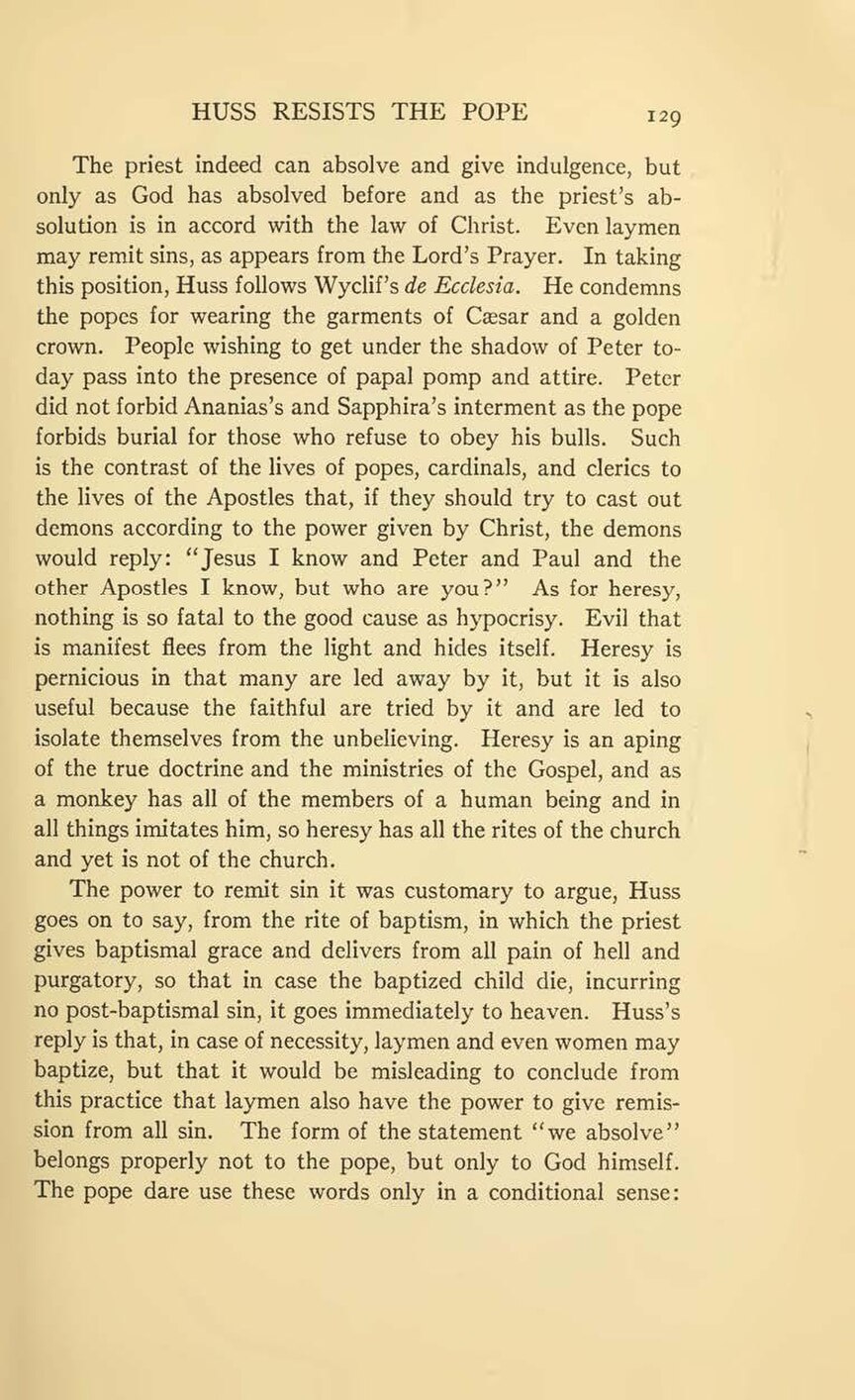The priest indeed can absolve and give indulgence, but only as God has absolved before and as the priest’s absolution is in accord with the law of Christ. Even laymen may remit sins, as appears from the Lord’s Prayer. In taking this position, Huss follows Wyclif’s de Ecclesia. He condemns the popes for wearing the garments of Cæsar and a golden crown. People wishing to get under the shadow of Peter today pass into the presence of papal pomp and attire. Peter did not forbid Ananias’s and Sapphira’s interment as the pope forbids burial for those who refuse to obey his bulls. Such is the contrast of the lives of popes, cardinals, and clerics to the lives of the Apostles that, if they should try to cast out demons according to the power given by Christ, the demons would reply: “Jesus I know and Peter and Paul and the other Apostles I know, but who are you?” As for heresy, nothing is so fatal to the good cause as hypocrisy. Evil that is manifest flees from the light and hides itself. Heresy is pernicious in that many are led away by it, but it is also useful because the faithful are tried by it and are led to isolate themselves from the unbelieving. Heresy is an aping of the true doctrine and the ministries of the Gospel, and as a monkey has all of the members of a human being and in all things imitates him, so heresy has all the rites of the church and yet is not of the church.
The power to remit sin it was customary to argue, Huss goes on to say, from the rite of baptism, in which the priest gives baptismal grace and delivers from all pain of hell and purgatory, so that in case the baptized child die, incurring no post-baptismal sin, it goes immediately to heaven. Huss’s reply is that, in case of necessity, laymen and even women may baptize, but that it would be misleading to conclude from this practice that laymen also have the power to give remission from all sin. The form of the statement “we absolve” belongs properly not to the pope, but only to God himself. The pope dare use these words only in a conditional sense:
